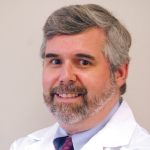A New Push from Doctors
In encouraging more widespread use of biosimilars, rheumatologists say professional organizations have a responsibility to educate them and their colleagues about the efficacy and potential immunogenicity of biosimilars, as well as the practical issues related to switching patients from originator biologics.
“There’s the medical part of it, but there’s also a significant policy part to it that requires education,” Dr. Yazdany says. “We need to understand how formularies are constructed, what the financial implications of switching are, and what the messaging needs to be for patients when they’re switched.”
Recent education from the ACR and other groups on biosimilar safety, efficacy, immunogenicity and switching data, Dr. Kay says, has helped push the needle on uptake among rheumatologists. “Initially, there was a lack of understanding and misconceptions about biosimilars that made rheumatologists skeptical about the efficacy and safety,” he says. Now, when he gives talks at continuing education programs, previously skeptical physicians tell him they’re much more accepting of prescribing them as biologic alternatives.
Dr. Yazdany also sees rheumatologists as important messengers about the cost considerations of using biosimilar replacements for biologics. “As rheumatologists, we increasingly are the stewards of very expensive drugs, and therefore really significant healthcare resources in the U.S. system, whether that’s on the public side or the private side,” she says. “And ultimately, these are significant taxpayer monies. Therefore, as responsible stewards, we need to help find a solution for high drug prices that I think are really straining patients’ pocketbooks and our healthcare system. We want patients to avoid financial toxicity, and ultimately we want to improve access.”
Bryn Nelson, PhD, is a medical journalist based in Seattle.
Disclosures
 Dr. Kay has received research support to the University of Massachusetts Medical School from Gilead Sciences Inc. and Pfizer Inc., and has served as a consultant to Alvotech Suisse AG, Arena Pharmaceuticals Inc., Boehringer Ingelheim GmbH, Celltrion Healthcare Co. Ltd., Merck Sharp & Dohme Corp., Mylan Inc., Novartis AG, Samsung Bioepis, Sandoz Inc. and UCB Inc.
Dr. Kay has received research support to the University of Massachusetts Medical School from Gilead Sciences Inc. and Pfizer Inc., and has served as a consultant to Alvotech Suisse AG, Arena Pharmaceuticals Inc., Boehringer Ingelheim GmbH, Celltrion Healthcare Co. Ltd., Merck Sharp & Dohme Corp., Mylan Inc., Novartis AG, Samsung Bioepis, Sandoz Inc. and UCB Inc.
 Dr. Yazdany has received consulting fees for observational research studies from Astra Zeneca and performed consulting on patient-reported outcomes for Eli Lilly.
Dr. Yazdany has received consulting fees for observational research studies from Astra Zeneca and performed consulting on patient-reported outcomes for Eli Lilly.
 Dr. Kim has received research grants to Brigham and Women’s Hospital from Pfizer, Roche, AbbVie and Bristol-Myers Squibb.
Dr. Kim has received research grants to Brigham and Women’s Hospital from Pfizer, Roche, AbbVie and Bristol-Myers Squibb.
References
- Kim SC, Sarpatwari A, Landon JE, Desai RJ. Utilization and treatment costs of tumor necrosis factor inhibitors after the introduction of biosimilar infliximab in the U.S. Arthritis Rheumatol. 2020 Jan 13. doi: 10.1002/art.41201. [Online ahead of print]
- Yazdany J. Failure to launch: Biosimilar sales continue to fall flat in the United States. Arthritis Rheumatol. 2020 Jan 10. doi: 10.1002/art.41203. [Online ahead of print]
- Joint statement of the Food & Drug Administration and the Federal Trade Commission regarding a collaboration to advance competition in the biologic marketplace. 2020 Feb 3.
- Baker JF, Leonard CE, Lo Re V 3rd, et al. Biosimilar uptake in academic and Veterans Health Administration settings: Influence of institutional incentives. Arthritis Rheumatol. 2020 Apr 6. doi: 10.1002/art.41277. [Online ahead of print]
- Jørgensen KK, Olsen IC, Goll GL, et al. Switching from originator infliximab to biosimilar CT-P13 compared with maintained treatment with originator infliximab (NOR-SWITCH): A 52-week, randomised, double-blind, non-inferiority trial. Lancet. 2017 Jun 10;389(10086):2304–2316.
- Cauchi R. State laws and legislation related to biologic medications and substitution of biosimilars. National Conference of State Legislatures. 2019 May 3.


